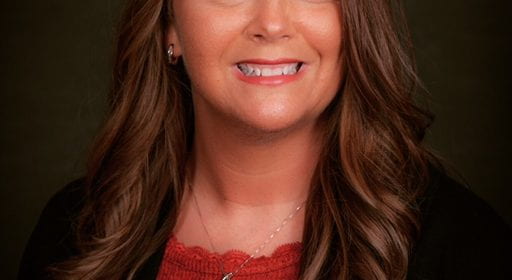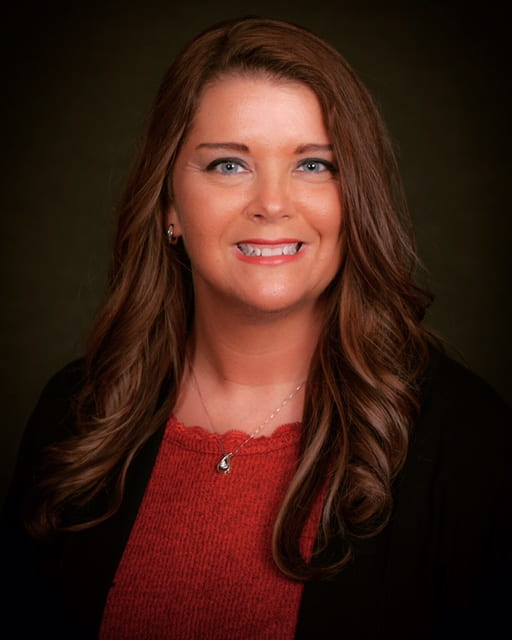Student Research Spotlight: Kristy Ludy (Nursing)


Kristy Ludy is a doctoral student in the Ph.D. in Nursing Education program at the Ron and Kathy Assaf College of Nursing. Kristy is in her fourth year of the program and starting the dissertation journey. Kristy is a Clinical Assistant Professor of Nursing at Indiana University South Bend (IU South Bend). Kristy collaborated with a colleague, Dr. Sharon Jones, on a qualitative study titled, BSN Student and Instructor Perceptions of Changes to Clinical Group Size and Timing and the Impact on Student Learning. For Kristy’s dissertation, the topic is planned to be Postgraduation Next Gen NCLEX (NGN) Preparation Experiences of Baccalaureate Nursing Students.
Briefly talk me through your research journey from your 1st day at NSU to today.
I had never conducted research before beginning at NSU. I was also a novice faculty member at my current job when I started at NSU. However, I knew that I wanted to pursue a doctoral degree, specifically, a Ph.D., and conduct research that would provide information that would help nursing students, faculty, and programs. During the second year of the Ph.D. program, I started thinking about what I could do for the mandatory research hours that I needed to complete. At IU South Bend, I was talking to one of my colleagues about needing to do the research and she suggested that we collaborate and do a qualitative study together regarding nursing clinical group size (eight to ten students per group) and the timing of clinical (length of shift, number of days per week, alternating weeks). After data was collected from undergraduate baccalaureate students and faculty, we completed the data analysis and wrote up our findings. We were able to present our study findings at several different conferences over the following months.
What made you interested in the type of research you are currently working on?
Since I am a Registered Nurse and work as a nurse educator in academia, I am interested in research that involves nursing students. I am passionate about nursing and teaching and want to help find information that can lead to improved student learning outcomes. I have been drawn to qualitative research as it brings rich descriptions of the experiences and perspectives of participants to light. The research that I collaborated on with Dr. Jones was qualitative and I really enjoyed the process. I already had an idea that I wanted to use a qualitative method for my dissertation topic since it is a new area of research and am looking forward to exploring students’ experiences with my topic, Postgraduation Next Gen NCLEX (NGN) Preparation Experiences of Baccalaureate Nursing Students.
What made you decide to work with your current research mentor?
Dr. Jones has been a mentor to me since 2018 when I chose her as my preceptor for my Master’s in Nursing Education practicum experience. Dr. Jones then became my colleague in 2019 and continued to be a mentor to me. Dr. Jones received her Ph.D. in Nursing from Loyola University-Chicago in 2012 and has worked for IU South Bend since 2006. She has been involved in multiple research studies and teaches research courses for the undergraduate and graduate nursing programs. She is extremely knowledgeable and knows how to guide novice researchers through the process.
How does this work relate to your future career goals and what do you plan to do next?
My future career goals involve continuing to teach baccalaureate nursing students and, after graduation, expanding to teach graduate nursing students while continuing to conduct research. The study previously conducted with Dr. Jones has brought useful information to our program regarding the size of clinical groups and the timing of the clinical shifts and how these factors impact student learning outcomes, satisfaction, and program outcomes. Themes that were found in the study regarding the timing of clinical include apply learning, overwhelming, rhythm, and Goldilocks shift. The themes that were found regarding clinical group size were decreased one-on-one time, time away from the bedside, and overwhelming. We have been able to disseminate the findings of our study by presenting at the 2022 Indiana League for Nursing Fall Event virtual conference, the 2022 Midwest Scholarship of Teaching of Learning (SoTL) Conference, and the 2022 Midwest Nursing Research Society 46th Annual Research Conference.
My dissertation study will explore the experiences of baccalaureate students regarding their preparation for the newly implemented format of the licensure examination, the Next Generation NCLEX (NGN). I plan to conduct future studies that stem from the findings of the dissertation study. I would like to present the findings from my dissertation and future research at regional, state, national, and maybe even international conferences.
How has NSU helped you pursue and/or achieve personal and professional goals you have set for yourself? Any specific NSU resources used that you would like to mention?
NSU has been helpful to me through the faculty in the program providing guidance and feedback on research methodology and the dissertation process. Besides improving my research comprehension, the program has increased my knowledge of instructional strategies that improve learning outcomes. I have used resources and articles that were included in papers I wrote for NSU nursing education courses as inspiration for real-life teaching strategies that I have implemented with my own students. In particular, active learning strategies such as escape rooms and video-skills library creation helped me to recently win the National League for Nursing (NLN)- Indiana League for Nursing (ILN) Horizon Teaching Award.
What advice do you have for other students interested in getting involved in research?
My advice to students would be to seek out a mentor who can appropriately show you how to conduct research. You do not want someone who rushes you, puts too much on you initially, or who rarely utilizes your newly acquired research skills. Having a research mentor who lets you become involved enough to where you learn but also guides and teaches so you acquire more knowledge the proper way is key. The study I collaborated on with Dr. Jones yielded a theme we called Goldilocks which means that students found one specific clinical timing or group size to be “just right”. It may seem daunting, but finding a mentor and research method that is “just right” will help you become more interested and experienced with research.